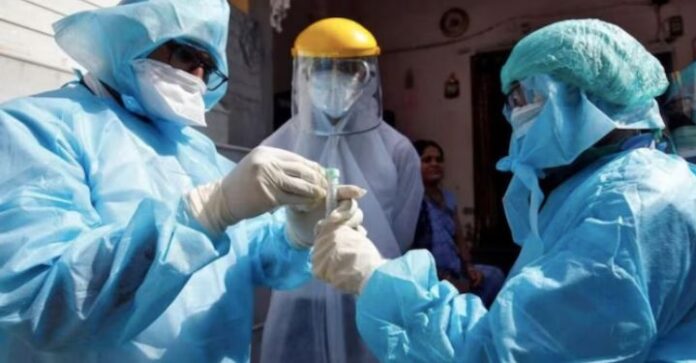India is witnessing a resurgence in COVID-19 cases, with the detection of two new variants, NB.1.8.1 and LF.7, in various states. These variants have been identified through wastewater surveillance and genome sequencing efforts by the Indian SARS-CoV-2 Genomics Consortium (INSACOG) and the World Health Organization’s South East Asia Regional Office (SEARO).
Variant Overview
- NB.1.8.1: This variant was first detected in Tamil Nadu in April. It carries mutations in the spike protein, including A435S, V445H, and T478I, which may affect transmissibility and immune evasion. Despite these mutations, the World Health Organization (WHO) has classified it as a Variant Under Monitoring, indicating that while it warrants attention, it does not currently pose a high global health risk.
- LF.7: Four cases of this variant were reported in Gujarat in May. Details about its specific mutations and characteristics are still under investigation. Like NB.1.8.1, LF.7 is being closely monitored by health authorities.
Current Situation in India
As of May 19, India reported 257 active COVID-19 cases, predominantly of the JN.1 variant, followed by BA.2 and other Omicron sublineages. Localized increases in cases have been observed in regions such as Delhi, Andhra Pradesh, Telangana, Bengaluru, Kerala, and Nagpur.
Health authorities emphasize the importance of continued vigilance and adherence to preventive measures, including mask-wearing, hand hygiene, and vaccination. The government has not classified COVID-19 as an immediate threat, but the emergence of new variants necessitates ongoing monitoring and preparedness.
Public Health Response
In response to the rising cases and detection of new variants, the Union Health Ministry has urged states to enhance surveillance and report any unusual patterns of illness. States have been advised to send positive samples for genome sequencing to INSACOG laboratories to facilitate the identification of new variants and inform public health strategies.
Additionally, health officials recommend that individuals, especially those with underlying health conditions, continue to follow COVID-19 precautions and stay informed about the latest developments.

